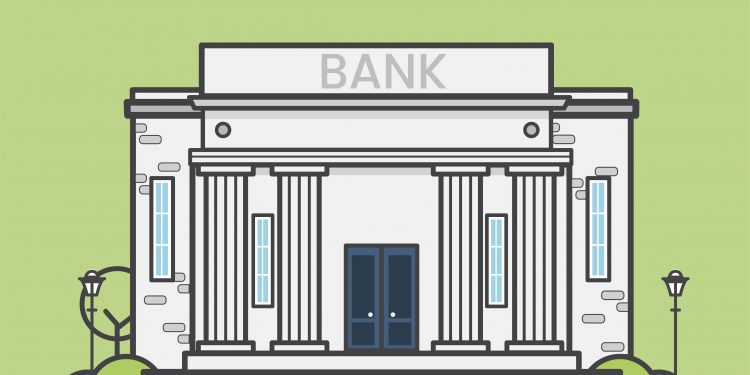Challenger banks are up-and-coming financial institutions that are making waves in the banking technology market. These brand new banks use modern tools and technologies to give their customers an instant and convenient banking experience.
This is a great article that clarifies for many the differences between what a fintech and what a bank can actually do. My concern is the blurred lines as to which regulations they really follow and who is really monitoring all of the activity. Financial services are complex and highly regulated … I‘m all for innovation, but there needs to be a clear set of rules. Do we really want any business to be able to handle financial services … maybe yes, maybe no, but either way the government needs to update the rules so there is clarity. Where do challenger banks come in?
How do we see the future of fintechs and banks? Will these financial players end up being competitors or partners?
We at Advapay are working daily with Fintechs to provide core banking platform and understand how important for them to have easy-to-connect and fast-to-market services.
It is no secret that during the past years, the stability of banks has been undeniably shaken. Digital disruption has affected the industry and steered fintech growth. Because of that, banks have been partially replaced by fintech companies that offer faster, more convenient, and cheaper financial services. But we understand that fintechs will never completely replace banks.
So, what is the future of banks and fintechs? We think that one of the most effective collaboration models in the future is BaaS. Let’s analyse the services, infrastructure, and capabilities of existing players!
Things that banks have and what fintechs don’t:
Banking licenses permit banks to provide more services than regular fintech licenses (E-money). For example, banks can settle transactions between other participants of the payment system (e.g., other banks).
Huge global infrastructure
Direct connection to different payment, clearing systems, and settlement mechanisms
Full range of services under one license, e.g., loans and credit, investment products, etc. Fintechs aren’t allowed either to receive funds on deposit accounts or grant loans.
Things that fintechs unable to do without banks or why fintechs need banks:
Fintechs hold their customer funds in banks
Fintechs cannot make payments without the correspondent banks
Fintechs aren’t allowed to make cash transactions
Things that fintechs have and what banks don’t
Simplified regulatory requirements
Lower operating costs and less staff because of automated business processes
Fully digitalized – focus on working online
Flexible, smaller-scale business infrastructure – more automated processes
So, should we think of banks and fintech as partners?
It is obvious for everyone that fintechs cannot exist without banks, but what about banks? Because banks are losing customers and their customer activity has decreased, they have started looking for ways to lower their costs and make additional revenue streams to keep their expensive systems running. But one thing is clear that banks and fintechs can no longer exist as separate entities.
That is why a handful of banks have adjusted their strategies and shared their infrastructure and even their licenses with other financial players. This is called a Bank-as-a-Service (BaaS). In other words, banks earn money by giving fintech companies or even large merchants access to their IT and business infrastructure.
So, what is Bank-as-a-service for fintech? In simple terms, this is access to a variety of banking services through a single connection. For example, you, as a fintech company, are connected to Bank X, and it means that you can open accounts for your customers and make transactions. You don’t need to separately connect to SEPA, SWIFT, etc. You don’t even need a license.
With the increase of new fintech startups that offer faster, cheaper, and more personalized services, banking services will take second place respectively, and the financial world will change forever. People will soon use bank accounts only for a few services, or even stop consuming bank services. To stay alive, one of the strategic opportunities for banks is to revisit their strategies and steer their business towards B2B services. BaaS or other types of sharing the bank’s infrastructure with other market players can turn into one of the principal revenue streams shortly.
Now we understand that banks can benefit from BaaS. But what about fintechs? Let’s run through the pros and cons of connecting to BaaS.
Pros of BaaS for fintechs
Speed and basic functionality in a relatively short period
Stability at every level of budget planning because of a subscription fee model
Cons of BaaS for fintechs
Lack of solution customization
With the increasing transaction volume and number of customers, BaaS becomes less advantageous
Vendor dependency
Retail marketplaces have done an incredible job over the past years by reinventing the way people shop for goods and services. Today, banks are introducing the same approach in their operations. BaaS gives a distinctive advantage for both banks and fintechs. For banks, switching to BaaS will help to cut operational and compliance costs and make the business more efficient, for fintechs – it will provide a ready-to-use and cost-effective infrastructure as well as faster launch to market.
This all may be true, but at what point will the larger banks and processors catch up and at what point will the challenger banks become common place, just like legacy banks. This will be interesting to watch moving forward …
To conclude, we believe that the success of next-generation banks will come down to navigating through technologies and building marketplaces for all financial needs. With banks and fintechs joining the “platform economy”, the rules of the game will change, and these players will be no longer competitors, but co-create value and ultimately embark on the journey of more seamless and connected financial services.
Overview provided by C. Sue Brown, Director, Prepaid Advisory Service at Mercator Advisory Group.
For the original article quoted in this coverage, please click here.











